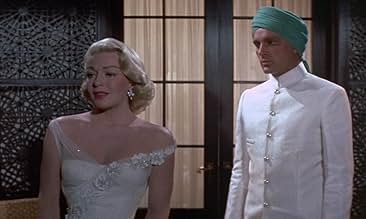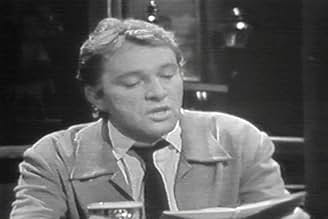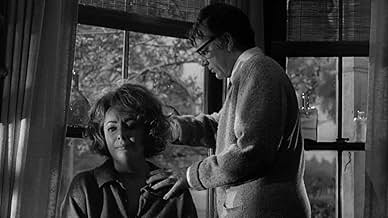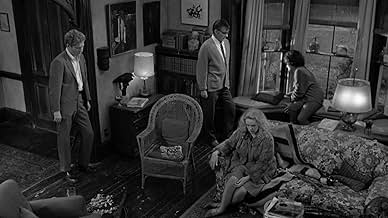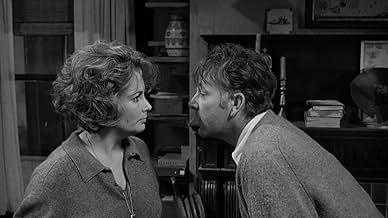Richard Burton(1925-1984)
- Actor
- Producer
- Director
Probably best-remembered for his turbulent personal life with Elizabeth Taylor (whom he married twice), Richard Burton was nonetheless also regarded as an often brilliant British actor of the post-WWII period.
Burton was born Richard Walter Jenkins in 1925 into a Welsh (Cymraeg)-speaking family in Pontrhydyfen to Edith Maude (Thomas) and Richard Walter Jenkins, a coal miner. The twelfth of thirteen children, his mother died while he was a toddler and his father later abandoned the family, leaving him to be raised by an elder sister, Cecilia. An avid fan of Shakespeare, poetry and reading, he once said "home is where the books are". He received a scholarship to Oxford University to study acting and made his first stage appearance in 1944.
His first film appearances were in routine British movies such asThe Last Days of Dolwyn (1949),Waterfront (1950)andGreen Grow the Rushes (1951).Then he started to appear in Hollywood movies such asMy Cousin Rachel (1952),The Robe (1953)andAlexander the Great (1956),added to this he was also spending considerable time in stage productions, both in the UK and USA, often to splendid reviews. The late 1950s was an exciting and inventive time in UK cinema, often referred to as the "British New Wave", and Burton was right in the thick of things, and showcased a sensational performance inLook Back in Anger (1959).He also appeared with a cavalcade of international stars in the World War II magnum opusThe Longest Day (1962),and then onto arguably his most "notorious" role as that of Marc Antony oppositeElizabeth Taylorin the hugely expensiveCleopatra (1963).This was, of course, the film that kick-started their fiery and passionate romance (plus two marriages), and the two of them appeared in several productions over the next few years includingThe V.I.P.s (1963),The Sandpiper (1965),the dynamicWho's Afraid of Virginia Woolf? (1966)andThe Taming of the Shrew (1967),as well as box office flops likeThe Comedians (1967).Burton did better when he was off on his own giving higher caliber performances, such as those inBecket (1964),the film adaptation of theTennessee WilliamsplayThe Night of the Iguana (1964),the brilliant espionage thrillerThe Spy Who Came in from the Cold (1965)and alongsideClint Eastwoodin the World War II action adventure filmWhere Eagles Dare (1968).
His audience appeal began to decline somewhat by the end of the 1960s as fans turned to younger, more virile male stars, however Burton was superb inAnne of the Thousand Days (1969)as King Henry VIII, he put on a reasonable show in the boringRaid on Rommel (1971),was over the top in the awfulVillain (1971),gave sleepwalking performances inHammersmith Is Out (1972)andBluebeard (1972),and was wildly miscast in the ludicrousThe Assassination of Trotsky (1972).
By the early 1970s, quality male lead roles were definitely going to other stars, and Burton found himself appearing in some movies of dubious quality, just to pay the bills and support family, includingDivorce His - Divorce Hers (1973)(his last on-screen appearance with Taylor),The Klansman (1974),Brief Encounter (1974),Jackpot (1974)(which was never completed) andExorcist II: The Heretic (1977).However, he won another Oscar nomination for his excellent performance as a concerned psychiatrist inEquus (1977).He appeared with fellow acting iconsRichard HarrisandRoger MooreinThe Wild Geese (1978)about mercenaries in South Africa. While the film had a modest initial run, over the past thirty-five years it has picked up quite a cult following. His final performances were as the wily inquisitor "O'Brien" in the most recent film version of George Orwell's dystopian1984 (1984),in which he won good reviews, and in the TV mini seriesEllis Island (1984).He passed away on August 5, 1984 in Celigny, Switzerland from a cerebral hemorrhage.
Burton was born Richard Walter Jenkins in 1925 into a Welsh (Cymraeg)-speaking family in Pontrhydyfen to Edith Maude (Thomas) and Richard Walter Jenkins, a coal miner. The twelfth of thirteen children, his mother died while he was a toddler and his father later abandoned the family, leaving him to be raised by an elder sister, Cecilia. An avid fan of Shakespeare, poetry and reading, he once said "home is where the books are". He received a scholarship to Oxford University to study acting and made his first stage appearance in 1944.
His first film appearances were in routine British movies such asThe Last Days of Dolwyn (1949),Waterfront (1950)andGreen Grow the Rushes (1951).Then he started to appear in Hollywood movies such asMy Cousin Rachel (1952),The Robe (1953)andAlexander the Great (1956),added to this he was also spending considerable time in stage productions, both in the UK and USA, often to splendid reviews. The late 1950s was an exciting and inventive time in UK cinema, often referred to as the "British New Wave", and Burton was right in the thick of things, and showcased a sensational performance inLook Back in Anger (1959).He also appeared with a cavalcade of international stars in the World War II magnum opusThe Longest Day (1962),and then onto arguably his most "notorious" role as that of Marc Antony oppositeElizabeth Taylorin the hugely expensiveCleopatra (1963).This was, of course, the film that kick-started their fiery and passionate romance (plus two marriages), and the two of them appeared in several productions over the next few years includingThe V.I.P.s (1963),The Sandpiper (1965),the dynamicWho's Afraid of Virginia Woolf? (1966)andThe Taming of the Shrew (1967),as well as box office flops likeThe Comedians (1967).Burton did better when he was off on his own giving higher caliber performances, such as those inBecket (1964),the film adaptation of theTennessee WilliamsplayThe Night of the Iguana (1964),the brilliant espionage thrillerThe Spy Who Came in from the Cold (1965)and alongsideClint Eastwoodin the World War II action adventure filmWhere Eagles Dare (1968).
His audience appeal began to decline somewhat by the end of the 1960s as fans turned to younger, more virile male stars, however Burton was superb inAnne of the Thousand Days (1969)as King Henry VIII, he put on a reasonable show in the boringRaid on Rommel (1971),was over the top in the awfulVillain (1971),gave sleepwalking performances inHammersmith Is Out (1972)andBluebeard (1972),and was wildly miscast in the ludicrousThe Assassination of Trotsky (1972).
By the early 1970s, quality male lead roles were definitely going to other stars, and Burton found himself appearing in some movies of dubious quality, just to pay the bills and support family, includingDivorce His - Divorce Hers (1973)(his last on-screen appearance with Taylor),The Klansman (1974),Brief Encounter (1974),Jackpot (1974)(which was never completed) andExorcist II: The Heretic (1977).However, he won another Oscar nomination for his excellent performance as a concerned psychiatrist inEquus (1977).He appeared with fellow acting iconsRichard HarrisandRoger MooreinThe Wild Geese (1978)about mercenaries in South Africa. While the film had a modest initial run, over the past thirty-five years it has picked up quite a cult following. His final performances were as the wily inquisitor "O'Brien" in the most recent film version of George Orwell's dystopian1984 (1984),in which he won good reviews, and in the TV mini seriesEllis Island (1984).He passed away on August 5, 1984 in Celigny, Switzerland from a cerebral hemorrhage.


